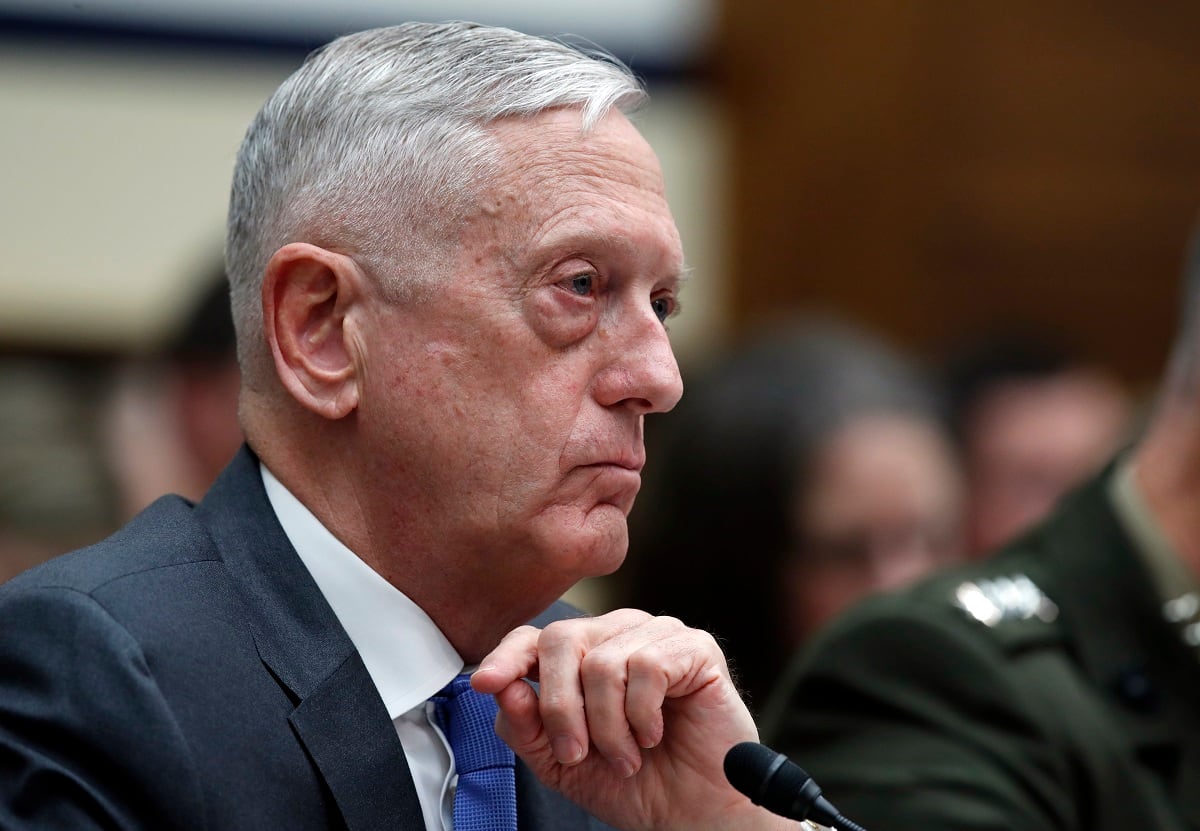WASHINGTON — Defense Secretary Jim Mattis worked to assure lawmakers on Thursday that the Pentagon “is not going to engage in the Syrian civil war” even as President Donald Trump continued to threaten military action against that country’s leadership for its alleged use of chemical weapons.
On Wednesday, in a series of tweets, Trump hinted at imminent military action against the Syrian regime, saying that U.S. missiles “will be coming, nice and new and ‘smart!’” He also taunted Russian leaders for claims they would defend their Syrian allies if such an attack took place.
But, just hours before Mattis testified on Capitol Hill, Trump appeared to partially reverse course on those threats, tweeting that he “never said when an attack on Syria would take place. Could be very soon or not so soon at all!”
Those comments drew a host of questions from members of the House Armed Services Committee, who questioned the legality of such action, the potential impact on U.S. forces in the region, and the value of publicly announcing military strikes before they occur.
Mattis said no decisions have been made on military intervention, but also said that the threat of chemical weapons use in a region where U.S. troops are already operating represents a clear threat to America.
“It’s very clear that our role in Syria is the defeat of ISIS,” he said.
RELATED

“But some things are inexcusable, beyond the pale, and in the worst interest of not just the chemical weapons convention, but civilization itself. So, the recognition of that means at times you are going to see contrary impulses.”
One year ago, Trump ordered a military strike against Syrian military sites in response to the regime’s use of chemical weapons against civilians and rebel-held areas. Last week, images from a similar attack in the Syrian town of Douma emerged, again indicating Syrian government involvement.
Mattis said that he is confident a chemical attack did occur but said efforts to get more information from independent investigators have been challenging so far.
He also said the administration is still committed to working the problem of the Syrian civil war — and possible chemical weapons use violations — through the United Nations and international courts.

“But that has been unfulfilled because of the work of Russia to block those efforts,” he said. “We want to drive this to a UN-brokered peace, but at the same time, to keep our foot on the neck of ISIS until they suffocate.”
Several Democrats on the panel questioned whether the Pentagon has authority for such attacks, with Hawaii Rep. Tulsi Gabbard calling illegal both the 2017 strikes and any future actions not approved by Congress.
Mattis dismissed those concerns. He said existing military force authorizations cover such moves, noting other military moves in the region by former President Barack Obama’s administration. He also said the seriousness of the threat of chemical attacks demands a strong response.
“I look for the legitimate protection of the American people,” he said. “I did not pick up a law degree.”
Mattis pledged to report to Congress if military action is authorized, but would not say whether that notification would come before or after the strike order is given.
Defense leaders were scheduled to meet with Trump at the White House Thursday afternoon to discuss possible options. Mattis in his testimony several times emphasized the importance of confronting security threats with international allies, but would not answer questions on whether other countries may be involved in action against Syria.
Leo covers Congress, Veterans Affairs and the White House for Military Times. He has covered Washington, D.C. since 2004, focusing on military personnel and veterans policies. His work has earned numerous honors, including a 2009 Polk award, a 2010 National Headliner Award, the IAVA Leadership in Journalism award and the VFW News Media award.




